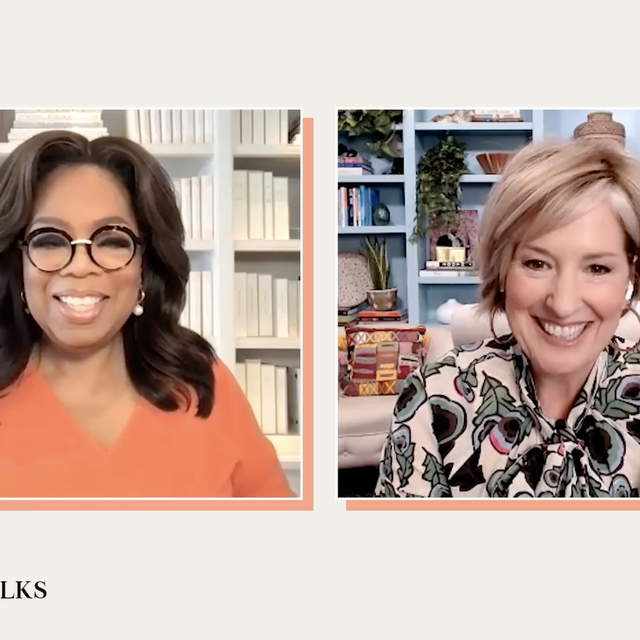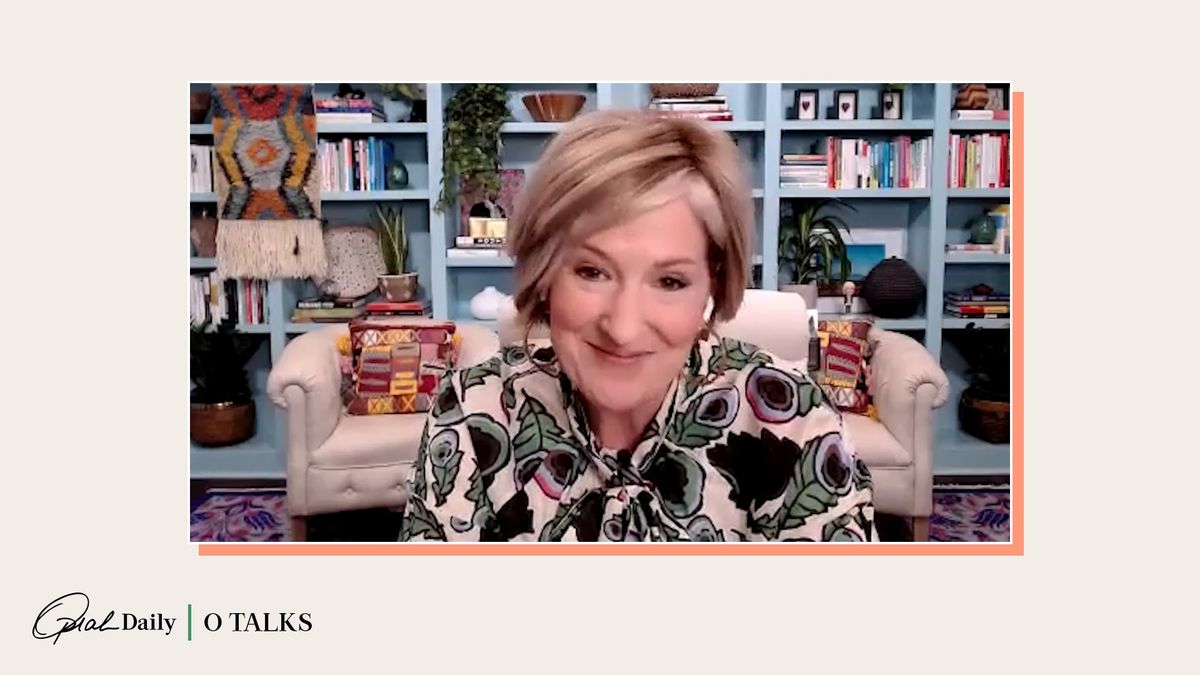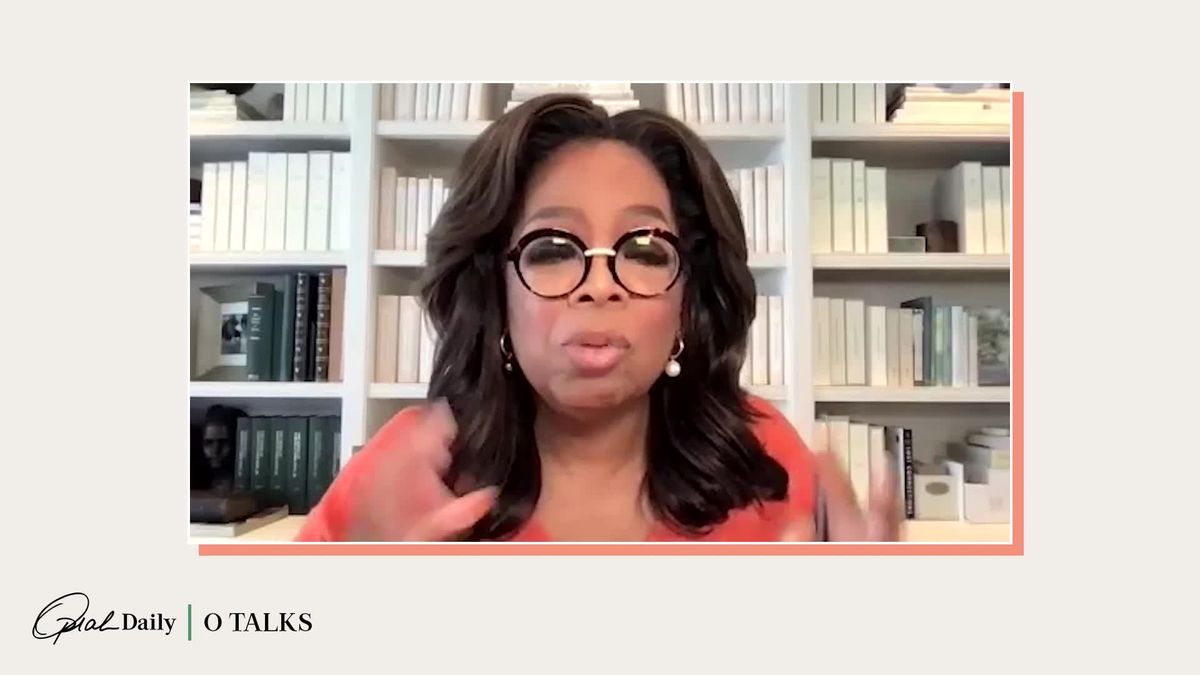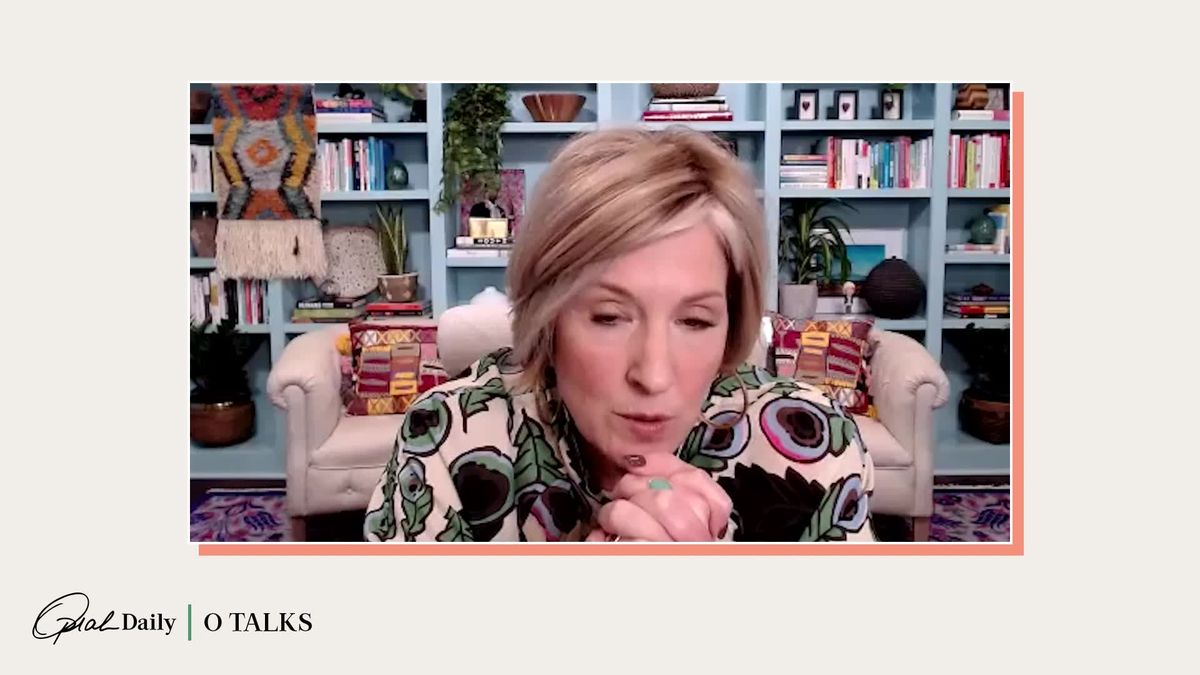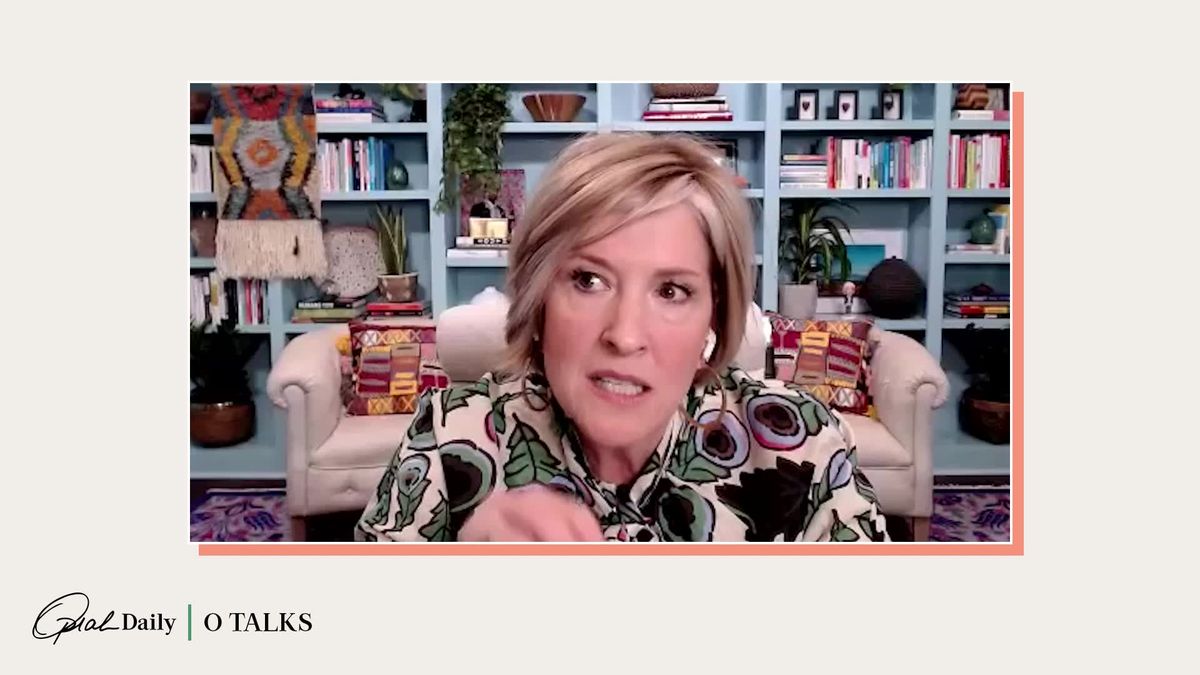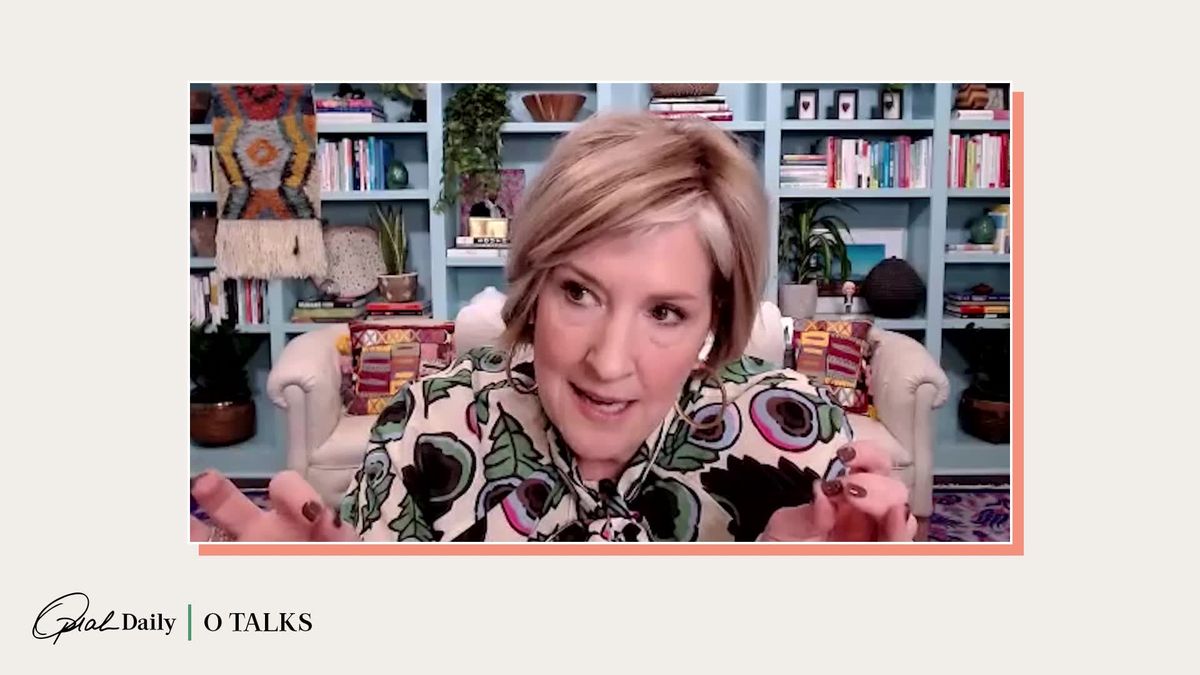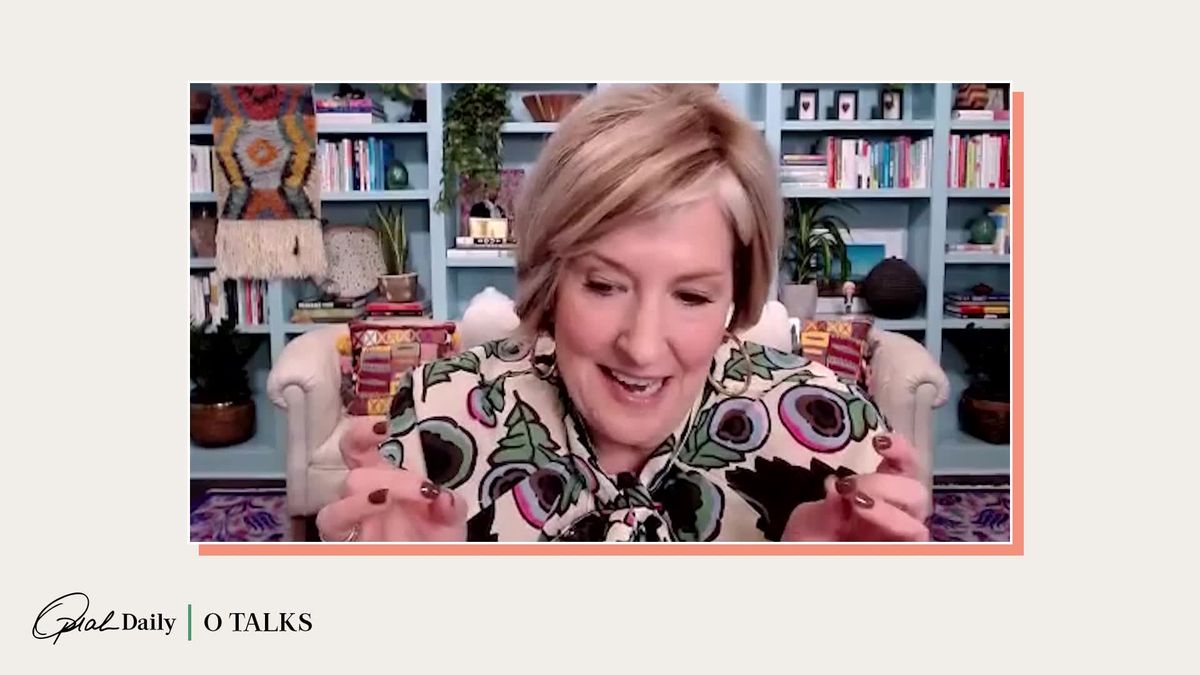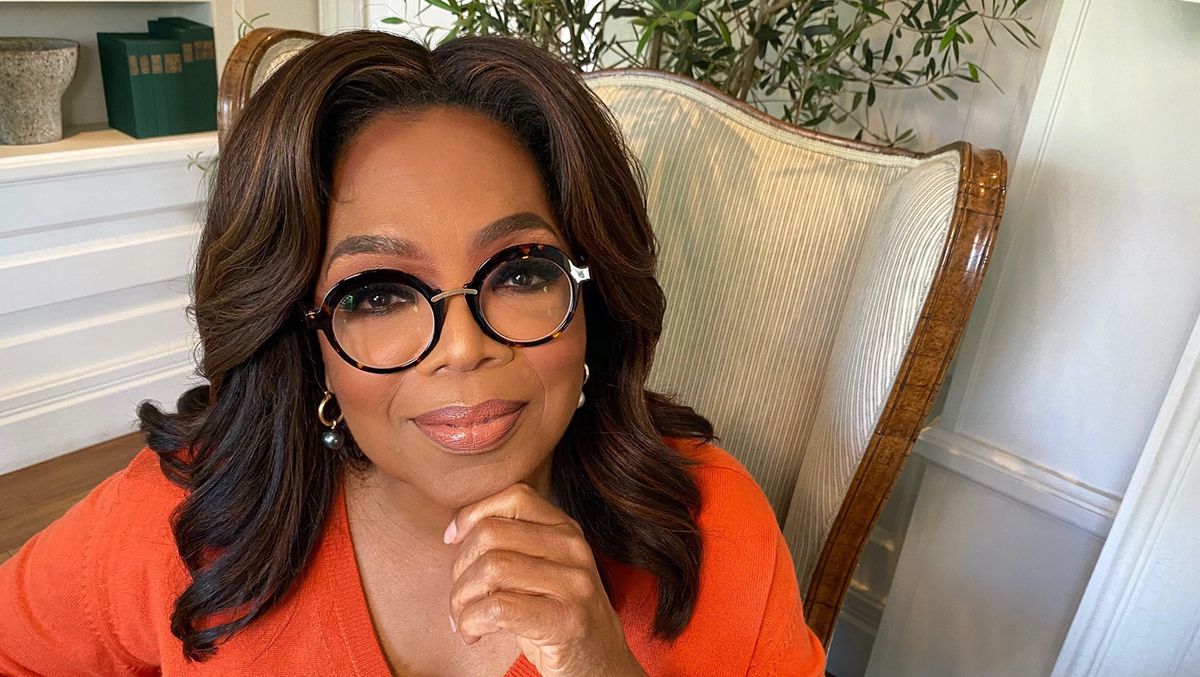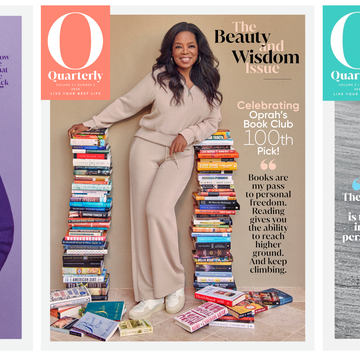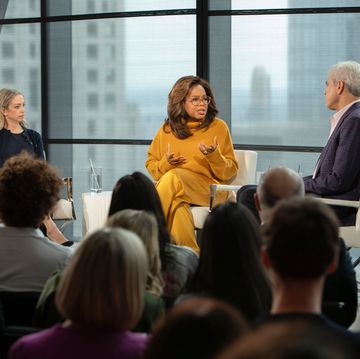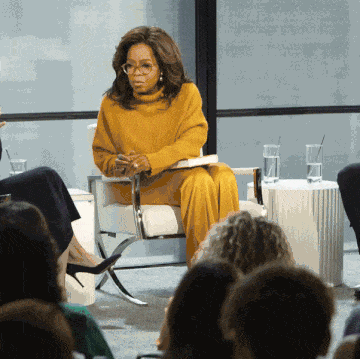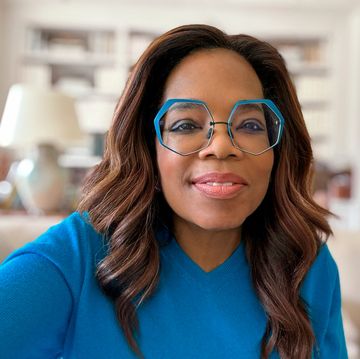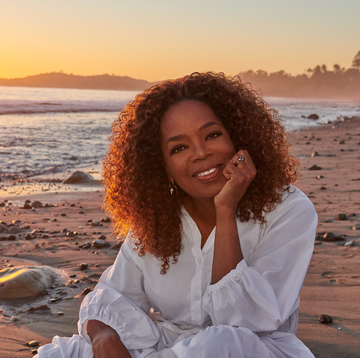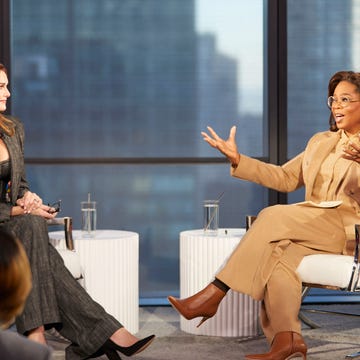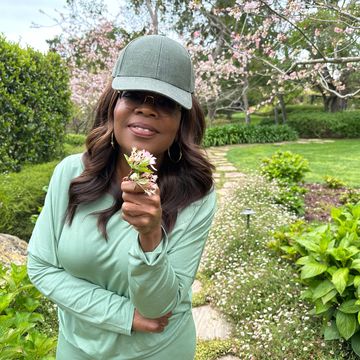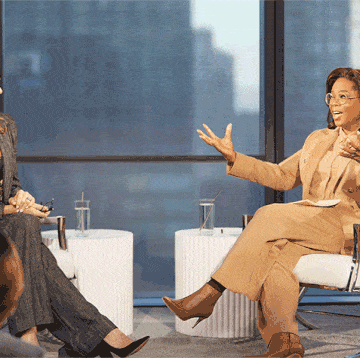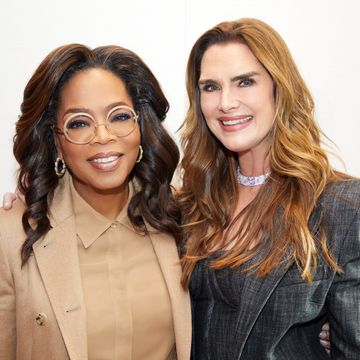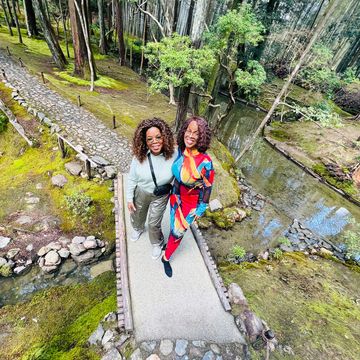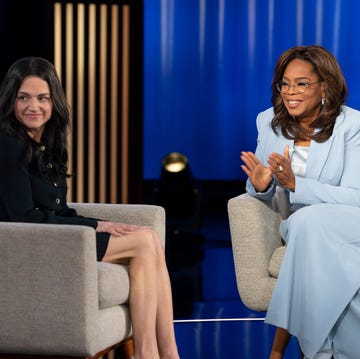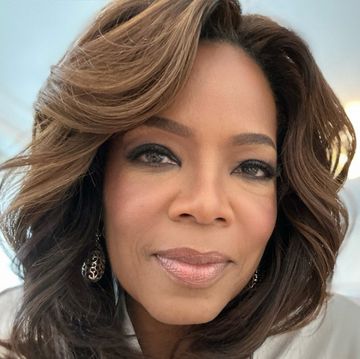Every Sunday, Oprah is setting an intention exclusively for Oprah Insiders, with reflections on themes like letting go, forgiveness, coming into your own, and more. This week’s theme, the importance of building meaningful connections, was inspired by a recent conversation with researcher and author Brené Brown about her new book, Atlas of the Heart.
Saturday, December 4: Watch Oprah and Brene Brown's Powerful Conversation
During their hour-long sitdown, Brown explains the power of knowing how to accurately name and effectively communicate our emotions. Earlier this week, Oprah reflected on why this book and the lessons it teaches are especially important right now:
"There is perhaps no time in recent memory when it's more necessary to cultivate empathy and connection in order to make sense of the profound changes that we're all undergoing, everywhere we turn. We can’t grapple with the many urgent issues facing us and facing our planet, without understanding ourselves first. In Atlas of the Heart, Brené and her team of researchers, therapists, educators, and others have so richly explored how to cultivate an emotional vocabulary. We need the words, the language, the expressions that help us process and identify what it is we're feeling and what is happening to us and be able to communicate that to other people.
What they've discovered is that without that, we won’t find the solid ground within us that gives us the courage and the confidence to embrace love, to embrace happiness, and our own vulnerability. To face and transcend our pain, or to navigate the great uncertainty that is the human condition. In Brené's words, she says, 'with an adventurous heart and the right maps, we can travel anywhere and never fear losing ourselves. Even when we don’t know where we are.' I just love that."
Friday, December 3: How Self-Awareness Can Lead to Healing
In yesterday’s clip, Oprah and Brené discussed how we’ve become “untethered” as a country. Here, Brown offers a suggestion for how to “re-tether” ourselves and forge more meaningful connections: “A million individual acts of self-awareness.” Until we learn to name our feelings and identify where those emotions are coming from, she warns, “we’re going to continue to inflict pain on each other.”
Oprah Winfrey: How do we begin to foster a deeper sense of belonging, or figuring out what really matters to us and re-tethering ourselves? What are we going to do to save ourselves?
Brené Brown: I hope there are like a million answers, and more than a million people smarter than me are working on it for sure. The only one I know that could make a big difference is self-awareness.
OW: For sure. That's why this book, Atlas of the Heart, is so important at this particular moment in time. Because what it ultimately brings each person who reads it to is a greater sense of—there's an “aha” on every page practically—is a greater sense of self-awareness about your feelings, and your ability to articulate those feelings. So, you're doing your part.
BB: I hope.
OW: I hope. But, so, it's a sense of self-awareness. It's by writing this and speaking up into the world and using your platform. How do we get the world to respond? One person at a time, I guess.
BB: I mean, it's a million individual acts of self-awareness. I thought about you before this interview, but I also thought about you when I was writing this. We will do almost anything to not feel pain—including causing other people pain.
OW: Correct! You say that.
BB: It's so much easier to hurt than to feel hurt. It's just part of our humanity, I guess. We need to understand where the hurt, the sorrow, the despair, the anguish, the rage is coming from so that we can not work it out on other people, on an individual level or a collective level.
Thursday, December 2: The Key to Creating Belonging
In this clip, Brené Brown explains why she believes we’ve become “adrift...spiritually, emotionally, physically, cognitively” and how we can begin to calm the tumult dividing friends, family, and community members in America right now.
Oprah Winfrey: You write that love and belonging are irreducible needs for all people, and in the absence of these experiences, there's always suffering. And when we look around at our society today, we see so many people literally in crisis, Brene, and suffering. I think about, ‘what is the root of all of that suffering and anger?’ and think of it differently now after reading Atlas. Because I don't even know; it looks like anger, but there's got to be lots of other things going on there. But I think ultimately, so many people feel that they don't belong. They are disconnected. They aren't connected to others, and to the natural and the spiritual world. Is that how you see it? What is happening to us now?
Brené Brown: We are...untethered.
OW: Yes.
BB: We're adrift, I think; spiritually, emotionally, physically, cognitively.
OW: That's not just because of politics, right?
BB: No. We're adrift because, you know…I said that in the definition of overwhelm, “the world is unfolding faster than my nervous system and my psyche can manage”? The world is unfolding faster than we, as a social species, can manage. And it's unfolding in a way that drives separation, not that drives connection. We've confused hyper-communicating with connection. I think one of the big problems and I got this wrong too, actually. I didn't get it wrong, but I missed it. As we're unmoored, untethered, adrift, we are desperately trying to find a port somewhere to pull in and find safe harbor. What we don't understand is, that port is inside of us. It is not external. The only way to find the shore right now is within us.
Wednesday, December 1: Rethink a Long-Held “Truth” About Empathy
Brené Brown has been studying, teaching, and writing about human connection for more than 20 years—but it wasn’t until she started working on Atlas of the Heart that she realized she’d been laboring under one very common misunderstanding. In this clip, Brown explains why we need to rethink the concept of “trying to walk in someone else’s shoes” if we truly want to understand each other better.
Brené Brown: Things that I was learning as I started doing this research: One, I was wrong about a couple of things...I got it wrong. One was, along with probably every other emotion researcher I know, I have said this sentence a thousand times: “We should learn how to recognize emotion in ourselves and others.” I do not think it is possible to learn how to recognize emotion in other people. I think that’s bad business. I don’t think it’s possible.
Oprah Winfrey: Because you just need to mind your own house.
BB: Well, you have to mind your own house. But secondly, no matter what behavior you were engaged in—if I saw you raging and throwing the books behind you, if I saw you sobbing—there are 50 emotions that present each of those ways! So I’m going to have to make a ton of assumptions.
OW: At the bottom line, what you’re saying is, just because you’re seeing that—we really don’t know what’s going on. And how many other layers of things are going on?
BB: And what, am I going to shove…with the experience of my employee who’s upstairs crying, and who’s 25, Black, and a single mom, I’m going to shove her experience in front of my lens, which is mid-50s, completely different?
So, the idea of walking in someone else’s shoes and trying to understand what they’re feeling, I believe has no merit. I think the call is much more difficult and much more powerful. And that is: to ask the person for their story of what it’s like in their shoes and to believe them. I think it’s not about guessing what they’re feeling.
OW: That’s more powerful, you now believe, than even trying to walk in their shoes, because you can’t walk in their shoes. Because your worldview—your purview—is completely different as a 50s white woman, versus a 25-year-old single mom, Hispanic, Black mother.
BB: It’s completely different. So the problem becomes, why do we think we have to walk in other people’s shoes?
OW: That is so powerful, Brené. Why can’t you just hear their story, and believe that what they’re saying is true?
BB: Well, the problem is the believing part. And the problem is in not believing her when she tells me her story—because it either challenges what I want to be true about the world, or it challenges my idea that there’s just one experience of the world. Or it makes me accountable in some way that makes me uncomfortable.
Tuesday, November 30: Understanding the Difference Between Similar Emotions
In today’s video, Brené Brown describes how her team of researchers, therapists, educators, and interns identified the core group of emotions and experiences discussed in her new book—the ones “you need to understand in order to heal from or move through.” Plus, as an example of why the subtle (yet significant) differences between two similar emotions matter, Brown explains how jealousy differs from envy. Here’s a brief excerpt of the discussion:
Brené Brown: The best way to teach jealousy is to teach the difference between jealousy and envy.
Oprah Winfrey: What is the difference?
BB: So, envy is usually an experience between two people. Jealousy is an experience between three. Envy is when we want something that someone else has. Jealousy is when we’re afraid of losing something we already have to someone else. And so, weirdly—if you showed me your vacation pictures and you’re like, “Brené, look at this last vacation. It was so fun,” I would say, “Oh my God, I’m so jealous. That looks great.” I’m actually not jealous.
OW: You’re envious.
BB: I’m envious! But I think we don’t say that for two reasons. One, we don’t say that because I think it’s one of the great sins, so no one wants to say they’re envious. It has a different connotation. Secondly, there’s two types of envy. An envy where I’m glad you had that vacation; I want it, too. And then a dangerous kind of envy, which is “I want that, and I don’t want you to have that.”
OW: Yes. Yes. Yes.
BB: So, it’s so much easier just to say—and we have cute words for jealousy. You’d be like, “Oh, Oprah, I’m so jelly. That looks, like, amazing!” But we’re actually not jealous; we’re actually envious.
Monday, November 29: Explore and Name Your Emotions
Today, Oprah and Brené Brown discuss the many ways we can all benefit from learning how to name complicated feelings and effectively communicate them to others. Plus, the Atlas of the Heart author explains the crucial difference between feeling stressed and being overwhelmed.
Oprah Winfrey: Let’s go back to that quote from the German philosopher [Ludwig Wittgenstein], “The limits of my language mean the limits of my world.” I think that was so perfectly said, and it gets to the heart of what you’re trying to do in this book. You’re trying to help us expand the language with which we communicate our feelings.
Brené Brown: Yes. This is an example I give in the book, and I think about it all the time; we’ll use you as an example. Imagine that you have a pain in your shoulder that’s so acute that when you feel it, you literally see stars. It takes your breath away. You finally get an appointment with the orthopedist. You go in and she looks at you and says, “I’m here to help. What's going on?” And the moment you try to point to it and describe it—there’s duct tape over your mouth. Your hands are tied behind your back.
And she says, “I don’t understand. I don’t understand.” I know people well enough to know that there are probably two options for us in that situation. We either lose control and start thrashing about and knocking things off the counter and just lose our minds. Or we slump over in despair. If all we really have are three words to describe happy, sad, and mad, what happens to grief, anguish, despair, wonder, joy, heartbreak? What happens?
And that is why language is a portal to universes of new choices and second chances.
OW: And language is a portal to actual connection!
BB: Yes!
OW: What you say so beautifully in the book is that “connection is the energy that exists between people when they feel seen, heard, and valued, when they can give and receive without judgment, and when they derive sustenance and strength from the relationship.” But you can’t have that if you can’t communicate your feelings—which is what we’ve heard for so many years, from women talking about their spouses in particular: “He doesn't communicate, he doesn’t communicate.” But what you are saying in Atlas of the Heart is that we all have issues with the language of communicating our emotions.
Sunday, November 28
Hello to you all! Hope you had a wonderful Thanksgiving! I wanted to share with you this line from Brené Brown’s latest extraordinary new book, Atlas of the Heart, that will be available come this Tuesday, November 30. She says, "Our connection with others can only be as deep as our connection with ourselves.” That's what we're talking about this week.
There is perhaps no time in recent memory when it's more necessary to cultivate empathy and connection in order to make sense of the profound changes that we're all undergoing, everywhere we turn. We can’t grapple with the many urgent issues facing us and facing our planet, without understanding ourselves first. In Atlas of the Heart, Brené and her team of researchers, therapists, educators, and others have so richly explored how to cultivate an emotional vocabulary. We need the words, the language, the expressions that help us process and identify what it is we're feeling and what is happening to us and be able to communicate that to other people.
What they've discovered is that without that, we won’t find the solid ground within us that gives us the courage and the confidence to embrace love, to embrace happiness, and our own vulnerability. To face and transcend our pain, or to navigate the great uncertainty that is the human condition. In Brené's words, she says, “with an adventurous heart and the right maps, we can travel anywhere and never fear losing ourselves. Even when we don’t know where we are.” I just love that.
The solid ground—the anchor we're searching for—is connection, and it is within each of us. But to forge meaningful connections with others, again, we have to first connect with ourselves. And I know we've been doing a lot of connecting this week with family and friends. We have to establish a common understanding of the language of emotions and human experience in order to do that.
I had this really great conversation with Brené about this book. And starting tomorrow we're going to be dropping little clips every day that hopefully will help expand your mind and your heart. Then this Saturday, December 4, you can watch our entire conversation right here on OprahDaily.com.
Brené Brown, Ms. Vulnerability herself—and who's shown us how to be more vulnerable in our own lives—always gives us new ways of seeing ourselves. I hope you'll join us December 4 for that conversation. Even if you can't, I hope you have a great week, and you remember that our intention of the week is to stay connected. Connection to yourself, so that you can be more connected to others. Thank you.
Click Here For More Content Exclusively For Oprah Insiders!
